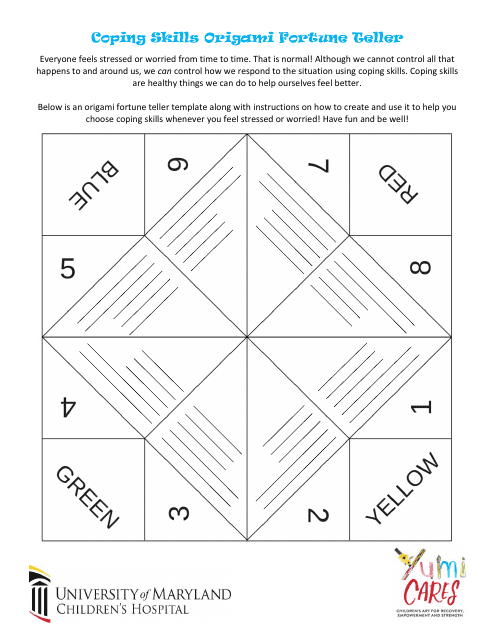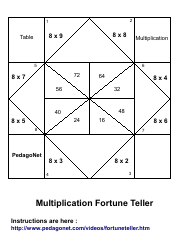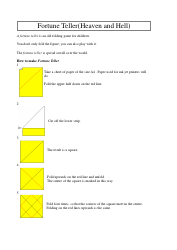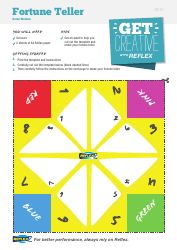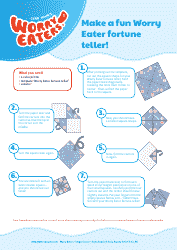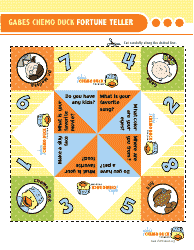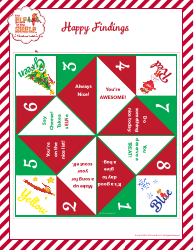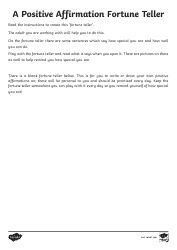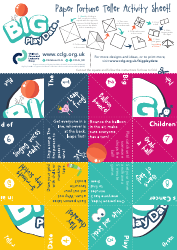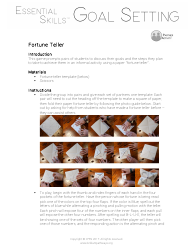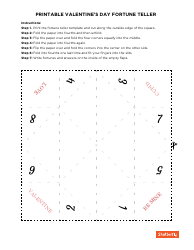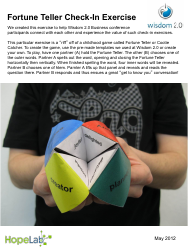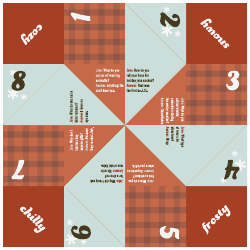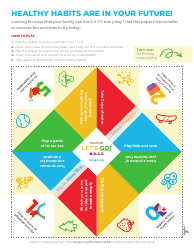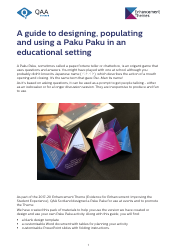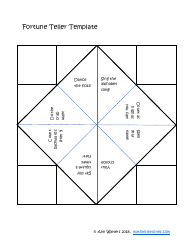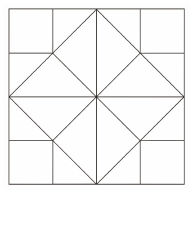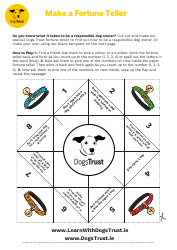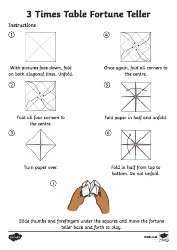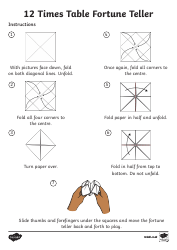Coping Skills Origami Fortune Teller Template
The Coping Skills structure. Each flap or section of the origami piece corresponds to different coping strategies or activities. When playing with this origami fortune teller, an individual can randomly select a coping strategy to try when they're feeling overwhelmed or anxious. It's a fun and visual way to encourage mental wellness and emotional resilience.
The Coping Skills Origami Fortune Teller Template is generally filed by teachers, therapists, counselors, parents, or any other individuals working with children to teach them effective coping skills. It's a playful and engaging tool often used in psychology or counseling sessions, as well as classrooms or homeschooling environments. It's designed to provide a fun way for kids to learn about and practice various coping strategies to manage their emotions. The file usually pertains to mental health and educational sectors, and there isn't a specific country that it's associated with since it's a tool used worldwide.
FAQ
Q: What is an origami Fortune Teller?
A: An origami Fortune Teller, also known as a cootie catcher, chancer, or salt cellar, is a form of origami used in children's games. It's a form of paper folding where the final result is a movable, interactive paper model often used for pretend-play or for predicting hypothetical future events.
Q: What is a Coping Skills Origami Fortune Teller Template?
A: A Coping Skills Origami Fortune Teller Template is a variation of the traditional game. Instead of predicting the future, each flap or section features a different coping strategy or helpful activity for stress, anxiety, or emotional regulation. This tool is often found in the toolbox of therapists, teachers, and counselors who work with children.
Q: How do you make a Coping Skills Origami Fortune Teller?
A: To make a Coping Skills Origami Fortune Teller, you start by cutting a square from a piece of paper. Then fold it into a fortune teller shape. You write different coping skills on each of the inner flaps. It's a fun, interactive way to learn about and remember coping skills for various situations.
Q: What are some examples of the coping skills that can be written on a coping skills origami fortune teller?
A: Some examples of coping skills you might write on the flaps include: deep breathing, practicing mindfulness, talking to a friend or adult, going for a walk, drawing or painting a picture, or writing in a journal. The skills included should be personalized based on what works for the person or child using the fortune teller.
Q: Can the coping skills origami fortune teller be used by adults?
A: Yes, the coping skills origami fortune teller is not limited to children. Adults can also use this tool to explore different strategies for dealing with stress, anxiety, or any other challenging emotions. It is a creative and interactive way to remember various strategies when they are needed.
